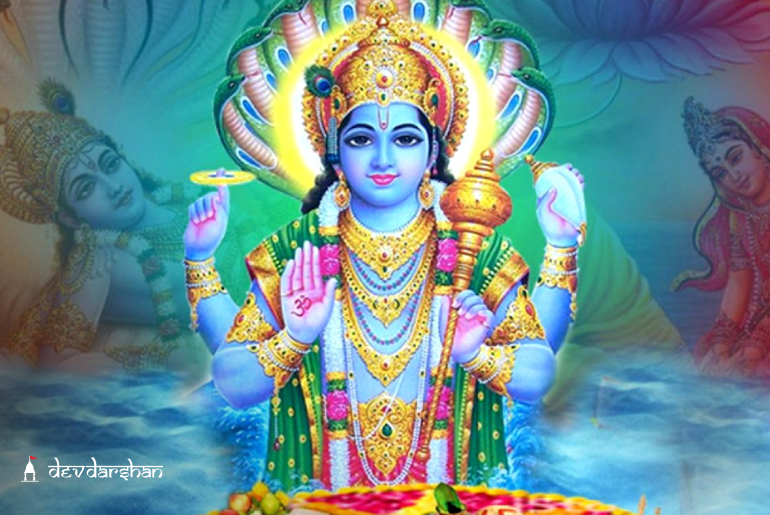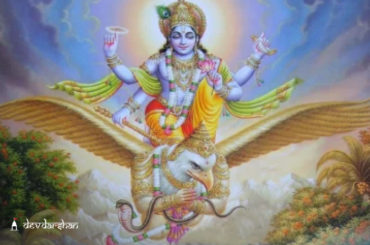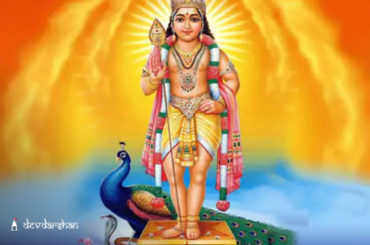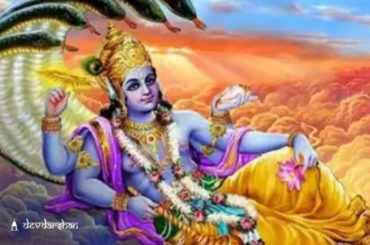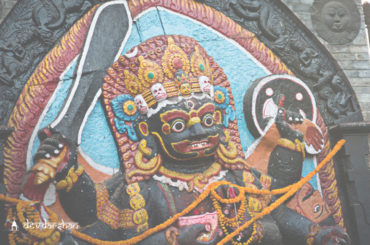Every fast has its own importance and benefits as per the Hindu scriptures. It is believed that keeping a fast brings the divine blessings of the Lord and showers the devotees with happiness and prosperity. Ekadashi Vrat holds a very significant place among all the fasts. There are 24 Ekadashis every year. Moreover, this year also has Aadhik Maas.
In Hinduism, Ekadashi is a very auspicious day that holds great importance. Every month, there are two Ekadashis. Ekadashi (11th) day of Krishna Paksha (Waning Moon Period) of Aadhik (June-July) month, according to the Hindu Calendar, is called Parama Ekadashi.
Parama Ekadashi falls during leaped month. Leaped month is also known as Adhika Masa, Malmas and Puroshhottam Masa. Ekadashi which falls during Krishna Paksha of Adhika Maas is known as Parama Ekadashi. Hence, no Lunar month is fixed to observe Parama Ekadashi fasting and it is based on leaped month. This Ekadashi is also known as Adhika Masa Ekadashi.
Parama Ekadashi 2023: Date, Muhurat and Timings
This year, Parama Ekadashi will be celebrated on Saturday, August 12, 2023.
- Ekadashi Tithi Starts: 05:06 a.m on August 11, 2023
- Ekadashi Tithi Ends: 06:31 a.m on August 12, 2023
- Parana Tithi (breaking fast) of Ekadashi: August 13 between 06:15 a.m to 08:19 a.m
Also Read: Significance of Nirjala Ekadashi
Significance of Parama Ekadashi
Parama Ekadashi holds great significance in Hinduism. It is believed that observing Parama Ekadashi with devotion and sincerity can lead to the forgiveness of sins and the attainment of spiritual liberation. Here are some key aspects of the significance of Parama Ekadashi:
Purification and Spiritual Progress
Observing Parama Ekadashi is considered highly auspicious and is believed to cleanse one’s mind, body, and soul. It is an opportunity for spiritual introspection, self-discipline, and progress on the path of devotion.
Attaining the Blessings of Lord Vishnu
Lord Vishnu, the preserver and protector in Hinduism, is believed to be especially pleased by the observance of Ekadashi fasts. Devotees who observe Parama Ekadashi with sincerity and devotion are said to receive the blessings and grace of Lord Vishnu.
Forgiveness of Sins
It is believed that by observing Parama Ekadashi, one can seek forgiveness for their past sins and wrongdoings. It is considered a day of repentance and seeking redemption.
Liberation and Spiritual Awakening
Parama Ekadashi is regarded as a highly spiritually charged day. By observing fasting, engaging in prayers, and devotional practices, individuals can deepen their spiritual connection, attain spiritual growth, and potentially progress towards liberation (Moksha).
Merits and Virtuous Deeds
It is believed that the merits earned by observing Parama Ekadashi are multiplied manifold. Acts of charity, selflessness, and performing virtuous deeds on this day are considered especially rewarding.
Purifying Ancestral Souls
Observing Parama Ekadashi and offering prayers and rituals on behalf of departed ancestors is believed to bring peace and liberation to their souls. It is seen as an act of compassion and a way to honour and remember ancestors.
Significance of the Leap Month
The occurrence of Parama Ekadashi during the leap month (Adhika Masa) adds to its significance. The leap month is considered spiritually potent, and observing Parama Ekadashi during this time is believed to bring additional blessings and spiritual benefits.
Overall, Parama Ekadashi is a sacred day for Hindus, providing an opportunity for spiritual purification, seeking forgiveness, and progressing on the path of devotion and liberation. It is a time for reflection, prayer, and acts of selflessness, leading to spiritual growth and connection with the divine.
Find out how to participate in Kamika Ekadashi
Parama Ekadashi 2023 Puja Vidhi
The puja rituals of Parama Ekadashi are as follows:
- Preparation: Cleanse the puja area and decorate it with flowers, incense, and sacred symbols. Place a picture or idol of Lord Vishnu or your chosen deity as the focal point of the puja.
- Fasting: Observing a strict fast from sunrise on Ekadashi day until the sunrise of the following day is an essential part of Parama Ekadashi. The fast usually includes abstaining from food and water, but some may opt for a partial fast with specific food restrictions.
- Wake up Early: Wake up early in the morning and take a purifying bath.
- Puja Invocation: Begin the puja by invoking Lord Vishnu or your chosen deity. Chanting prayers, mantras, or singing devotional songs dedicated to Lord Vishnu is customary.
- Offerings: Offer water, flowers, fruits, sweets, and other symbolic items to the deity as a sign of devotion and surrender. You can also offer tulsi (holy basil) leaves, which are considered sacred to Lord Vishnu.
- Arati: Light incense sticks and a ghee lamp, and perform an arati (circular movement of the lamp) in front of the deity. Sing or recite arati songs or mantras during this ritual.
- Reading Scriptures: Read or listen to the sacred scriptures such as the Vishnu Sahasranama (thousand names of Lord Vishnu), Bhagavad Gita, or relevant passages from the Puranas (ancient Hindu texts) that glorify Lord Vishnu.
- Meditation and Prayer: Spend time in meditation, focusing on Lord Vishnu and seeking his blessings. Offer heartfelt prayers for forgiveness, spiritual growth, and the well-being of yourself and others.
- Katha (Narration): Listen to or narrate the significance and stories associated with Parama Ekadashi. These stories often highlight the glory of Lord Vishnu and the importance of observing Ekadashi fasts.
- Charity: Performing acts of charity, such as donating food, clothing, or money to the needy, is considered auspicious on Parama Ekadashi. It is seen as a way to share blessings and earn merit.
- Bhajans and Kirtans: Sing devotional songs and participate in group singing (bhajans) or congregational chanting (kirtans) to express devotion and create a devotional atmosphere.
- Breaking the Fast: After sunrise on the following day (Dwadashi), end the fast by consuming simple, sattvic (pure) food. It is customary to offer the first meal to Lord Vishnu before partaking in it.
Also Read: How to Perform Lord Vishnu Puja?
Remember that these rituals are general guidelines, and you can personalize them based on your beliefs and practices. It is always beneficial to perform these rituals with devotion, sincerity, and a pure heart.
Parama Ekadashi Mantra
The mantra ‘ Om Namoha Bhagvate Vasudevaye’ should be chanted 108 times if possible using a Chandan Mala.
|| ॐ नमो भगवते वासुदेवाय ||
Om namo bhagavate vasudevaya
|| Hare Rama Hare Rama, Rama Rama Hare Hare ||
|| Hare Krishna Hare Krishna, Krishna Krishna Hare Hare ||
Parama Ekadashi Vrat Katha
According to religious legends, Shri Krishna is said to have narrated the story of Parama Ekadashi Vrat and its significance to Arjuna.
In a town called Kampilya, there lived a Brahmin named Sumedha along with his supremely virtuous and chaste wife named Pavitra. Despite their poverty, they were deeply religious and served their guests with utmost dedication. However, feeling disheartened by their circumstances, the Brahmin contemplated going abroad. But his wise wife consoled him, saying that good fortune and blessings are a result of virtuous deeds performed in previous lives, and they should not lose hope.
One day, Maharishi Kaudilya visited their humble abode. The Brahmin couple wholeheartedly served the sage. Observing their condition, Maharishi advised them to observe a fast on Parama Ekadashi. He explained that by fasting together on the Ekadashi day during the Krishna Paksha of the Adhik Masa (leap month) and staying awake during the night, they could overcome their poverty. The sage cited examples of Yakshaj Kubera, who became the Lord of Treasures, and King Harishchandra, who regained his kingdom, through the observance of this Ekadashi Vrat.
Inspired by the sage’s words, Sumedha and Pavitra observed the fast of Parama Ekadashi as instructed. To their astonishment, early the next morning, a prince on a horse arrived and bestowed upon Sumedha a prosperous home, abundant wealth, property, and resources. From that moment onwards, the couple lived happily ever after, free from the burdens of poverty.
This story highlights the transformative power of observing the Parama Ekadashi Vrat, demonstrating that sincere devotion and adherence to this sacred practice can bring about positive changes and blessings in one’s life.
Learn about the Religious Benefits of Fasting on Ekadashi
Check out various Online Puja and services provided by DevDarshan here and get your bookings done in one click. If you want to know more about Indian culture, Indian Temples, Pujas and festivals, then download the DevDarshan App. Don’t forget to share this blog if you liked.

